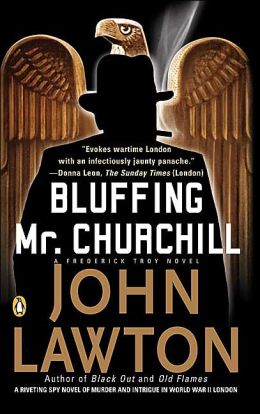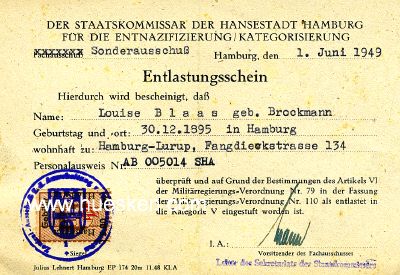At the center of Lawton’s stylish new espionage thriller is that classic set-piece of the Cold War espionage novel, the exchange of imprisoned spies on a bridge between East and West Berlin. But it’s the story of how the characters got there, physically and emotionally, that propels the story.
 Protagonist Joe Wilderness (born John Wilfrid Holderness) is an agent for MI-6, given the task in 1965 of arranging to swap KGB deep-cover agent Bernard Alleyn for a hapless English businessman caught adding a little spying to his business trips to the USSR. We learn how Alleyn lived a thoroughly conventional English life for 20 years before being nabbed by British intelligence. On the other side, Geoffrey Masefield, a metallurgist, is betrayed by his own romantic notions of spydom and the incompetent ambitions of his British handler.
Protagonist Joe Wilderness (born John Wilfrid Holderness) is an agent for MI-6, given the task in 1965 of arranging to swap KGB deep-cover agent Bernard Alleyn for a hapless English businessman caught adding a little spying to his business trips to the USSR. We learn how Alleyn lived a thoroughly conventional English life for 20 years before being nabbed by British intelligence. On the other side, Geoffrey Masefield, a metallurgist, is betrayed by his own romantic notions of spydom and the incompetent ambitions of his British handler.But the story that matters most is Wilderness’s. This novel begins in 1963, just where its predecessor, Then We Take Berlin (reviewed here) left off, with Joe being in a heck of a predicament as a result of an East/West smuggling operation gone spectacularly awry during JFK’s famous visit to Berlin that summer. We jump around between there and 1961, as well as 1965 and even all the way back to 1946, when Joe was an army sergeant, black marketeer and British intelligence agent in the chaos, romance and ethical soup that was Berlin after the World War II shooting war stopped and the Cold War was in its infancy. Coming back to Berlin in the 1960s isn’t easy for Joe; it brings back bittersweet memories and forces him to deal with some of his old black market contacts.
Joe Wilderness is one of my favorite espionage thriller characters. Born into East End poverty, trained in thievery by his burglar grandfather, talent-spotted after being drafted into the army at the end of World War II and educated in the languages, history and politics you’d want any Cold Warrior to know, Joe is as smart, conflicted and cynical as any Raymond Chandler character. In his world, moral ambiguity is the norm and he doesn’t waste his time putting his faith in any person or ideal. Still, he has a heart, even if he opens it up only occasionally and reluctantly.
Another strong point of the novel is John Lawton’s evocation of time, place and atmosphere. It’s hard to find a more fascinating time and place than Cold War Berlin, but Lawton still uses his narrative skills to transform history into gripping fiction. His description of barbed wire going up right through the middle of Berlin in 1961 had me gripping the book so hard my hand cramped, even though I know the history well. Lawton is a master at weaving the historical facts into the threads of his fictional story and bringing both to vivid life.
 I’ve been debating whether I’d say that it’s necessary to read the first Joe Wilderness novel, Then We Take Berlin, before reading The Unfortunate Englishman. It’s definitely not absolutely necessary, and I’d hate for anybody to miss out on this book, but I have to recommend reading Then We Take Berlin first. That’s where you get Joe’s full and extremely colorful background, which adds extra richness to the plot of The Unfortunate Englishman.
I’ve been debating whether I’d say that it’s necessary to read the first Joe Wilderness novel, Then We Take Berlin, before reading The Unfortunate Englishman. It’s definitely not absolutely necessary, and I’d hate for anybody to miss out on this book, but I have to recommend reading Then We Take Berlin first. That’s where you get Joe’s full and extremely colorful background, which adds extra richness to the plot of The Unfortunate Englishman.If you like the Joe Wilderness books, Lawton also has a terrific series featuring Metropolitan Police detective Frederick Troy. The series begins with Black Out: An Inspector Troy Thriller and its titles are set during World War II and various times thereafter, through the 1960s.
Note: The publisher provided a free advance reviewing copy of The Unfortunate Englishman. Versions of this review may appear on Amazon, Goodreads, BookLikes and other reviewing sites under my usernames there.
Image sources: bookdepository.com, bridgeofspies.com, harper-ganesvoort.com.



















